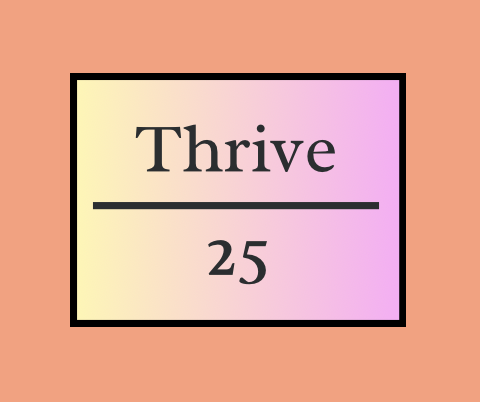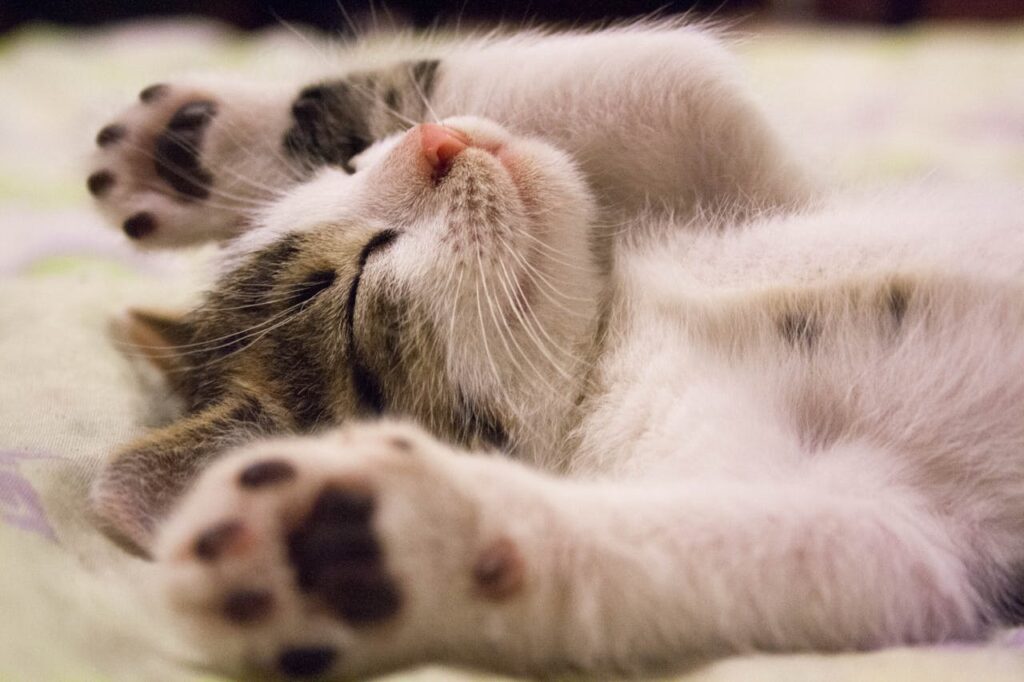Tired of being tired? Here’s how to feel rested again.
Are you one of the thousands of people who feel like they just can’t seem to ever feel rested? That’s right, you’re definitely not alone. In fact, a recent survey by OnePoll found that 42% of Americans do not sleep well and rarely feel rested. This is not good, y’all.
The importance of sleep1 cannot be stressed enough. Lack of sleep can cause mental health disorders to surface, serious health problems to arise, lowers our immune systems, hinders our cognitive function and has even been linked to weight gain and heart disease. So if you’re one of those people who tells yourself “I’ll sleep when I’m dead”… honey you’ll be there sooner than you think…
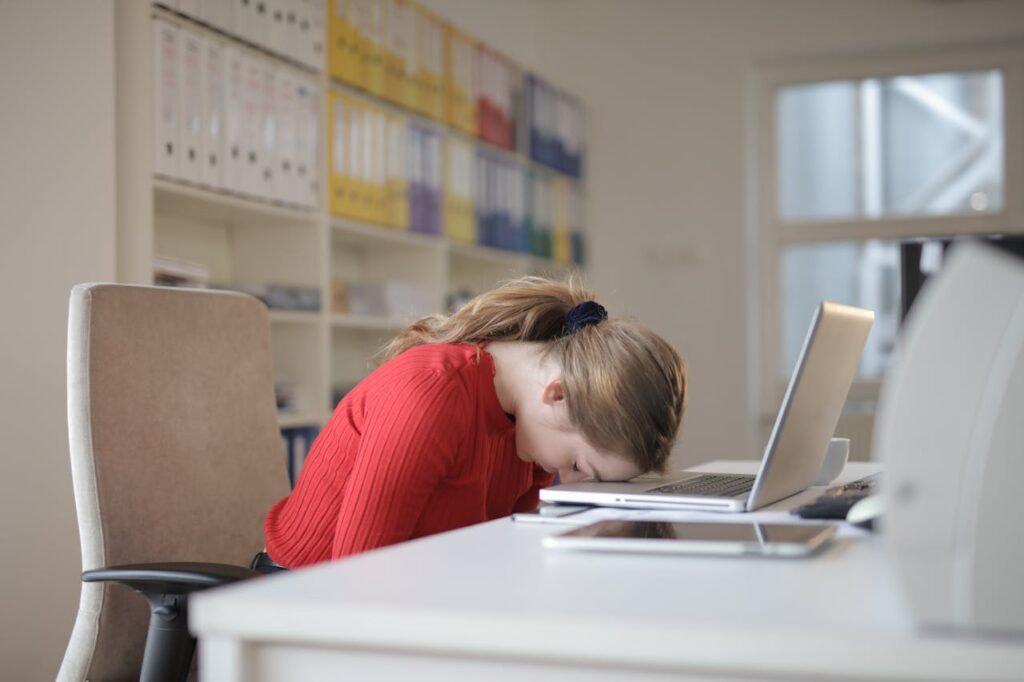
I’ve never understood why this generation seems to love to brag about how little sleep they’ve gotten, and everyone seems to try to outdo each other with how little hours of sleep they’re running on. We’ve developed a culture, here in America at least, that seems to glorify perpetual exhaustion. There are 5000 different brands of energy drinks nowadays and the coffee industry is worth billions, but the cost is more than monetary.
The damage lack of good sleep is doing to our health is unsustainable. We’re sick more often, we’re irritable, we’re in a zombie-like haze going about life unable to function at 100%, and our exhaustion is leading us into more unhealthy habits; but the truth is most of us aren’t just not doing anything to stop it, we’re actually exacerbating the problem.
Let’s take a look at the ways we can improve our sleep habits, stop making them worse, and just maybe, start to feel rested…
Caffeine

Drinking too much caffeine is a huge catalyst to lack of good quality sleep. Most people who get used to drinking lots of caffeine feel that it doesn’t affect their sleep at all, but this is not the case. Even if you have little to no trouble falling asleep after drinking caffeine all day, or too close to bedtime, a compilation of studies have shown that heavy caffeine intake, especially as it gets closer to bed time, drastically reduces the quality of our sleep. Those same studies also found that caffeine increases the time it takes to fall asleep, so whether you believe it or not, chances are that extra caffeine is making it harder for you to sleep.
Now I’m obviously not saying to completely cut out caffeine. I have a coffee every morning, usually a tea around midday and even sometimes a cappuccino from a coffee shop or something if I have a long day or just in the mood for a nice cappuccino. Studies have shown that a cup of coffee a day can improve your heart health, lower your risk of type 2 diabetes, liver and endometrial cancers, Parkinson’s disease, and helps to combat depression. Teas are notoriously good for immune support, can ease sore throats, and more.
So no one is saying that caffeine is bad for you, necessarily. It just needs to be consumed in moderation, at the correct time, in the correct form. In other words, you just need to be careful with caffeine.
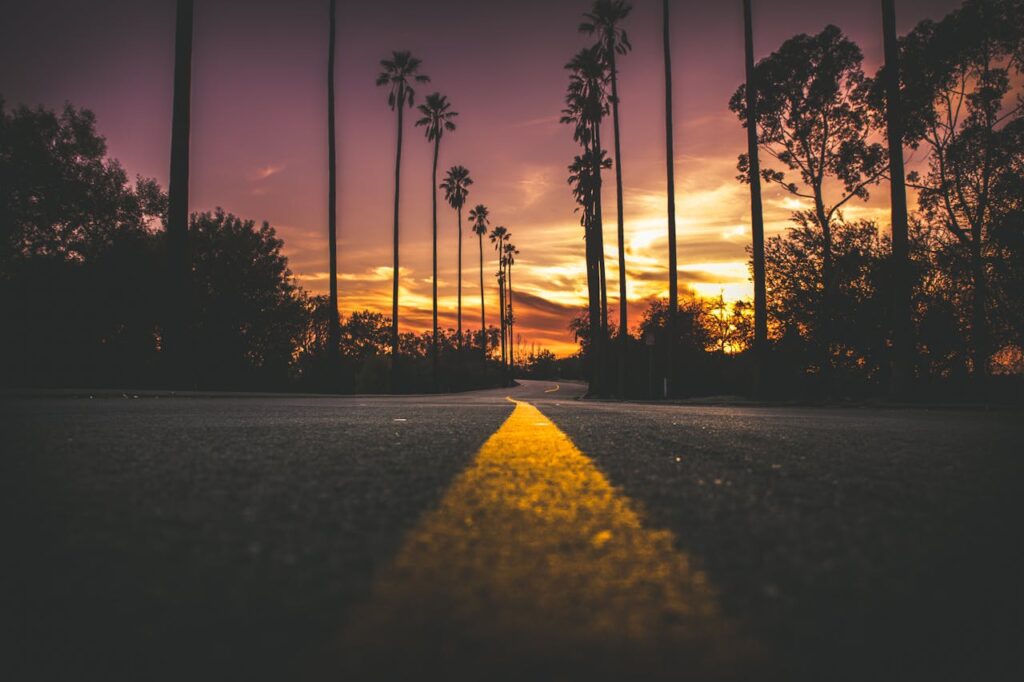
Ideally, you shouldn’t be consuming caffeine in the afternoon, especially not in the evenings, but if you must, I would say to try to cut off any caffeine intake after 3PM at least. The the Sleep Foundation actually recommends consuming caffeine 8 hours prior to bed time, but that’s a little unreasonable to me 😅. I feel like simply cutting it off in the early afternoon is fine, but if you notice that that still isn’t helping, maybe try following the legit health guidelines and see if it helps. It’s worth a try. After all, good sleep is worth most any sacrifice, and if you start feeling more rested, you might find you don’t even need all the caffeine you were previously consuming.
The correct form is also important. By this, I mean drinking coffee or tea is fine… but generally most energy drinks and especially sugary (or even sugar free) soft drinks really should be cut out or limited to a very occasional thing. I know so many people who basically run off of energy drinks and drink them constantly… that’s just not a good way to live.
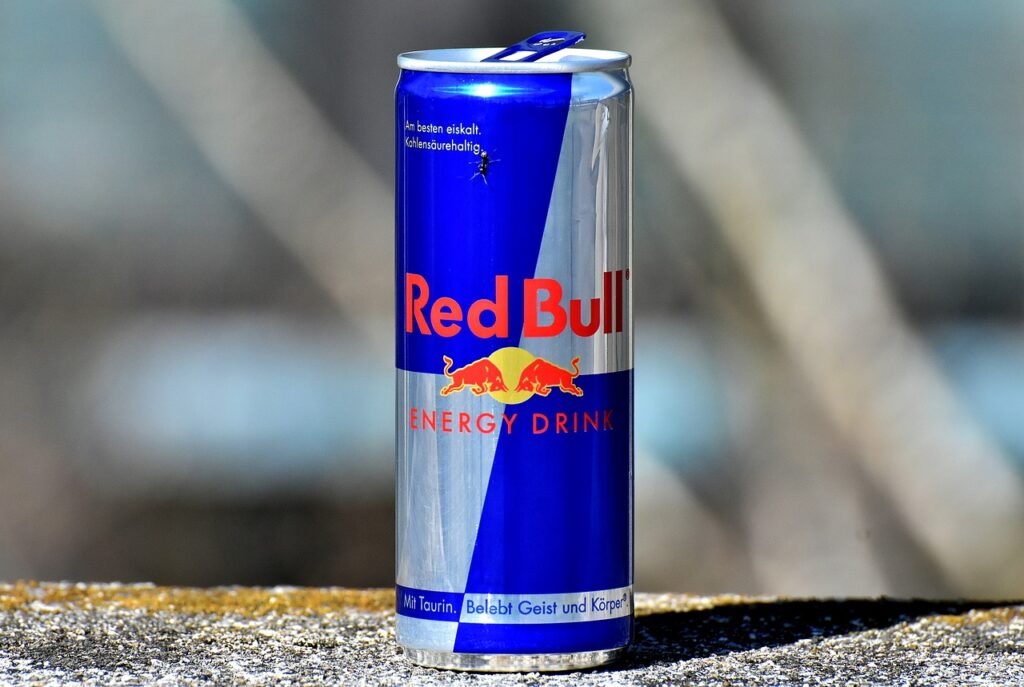
I know I’m going to ruffle some feathers by saying this, but even the “healthy” energy drinks aren’t great for your health. Usually there are artificial ingredients to add taste and boost your energy that can be very harmful if used all the time. Not to mention, these tend to get kind of addicting and make it very easy to become dependent on them. Why not just opt for some natural caffeine like coffee or tea? It literally works the same and is far more natural.
Pre-workout is another big one. There is nothing wrong with pre workout in and of itself but so many people over use it and use it in the evenings because that’s when they have time to workout. I honestly am not a fan of pre-workout in general myself for many reasons,1 but if you absolutely must take it because you’re trying to bulk up or whatever, it’s best to keep the intake to a minimum and take it only for morning/midday workouts so as not to affect your sleep.
Inconsistent Sleep Schedule
A lot of research has shown that going to bed around the same time and waking up at the same time every day as much as possible is incredibly beneficial for our sleep health.
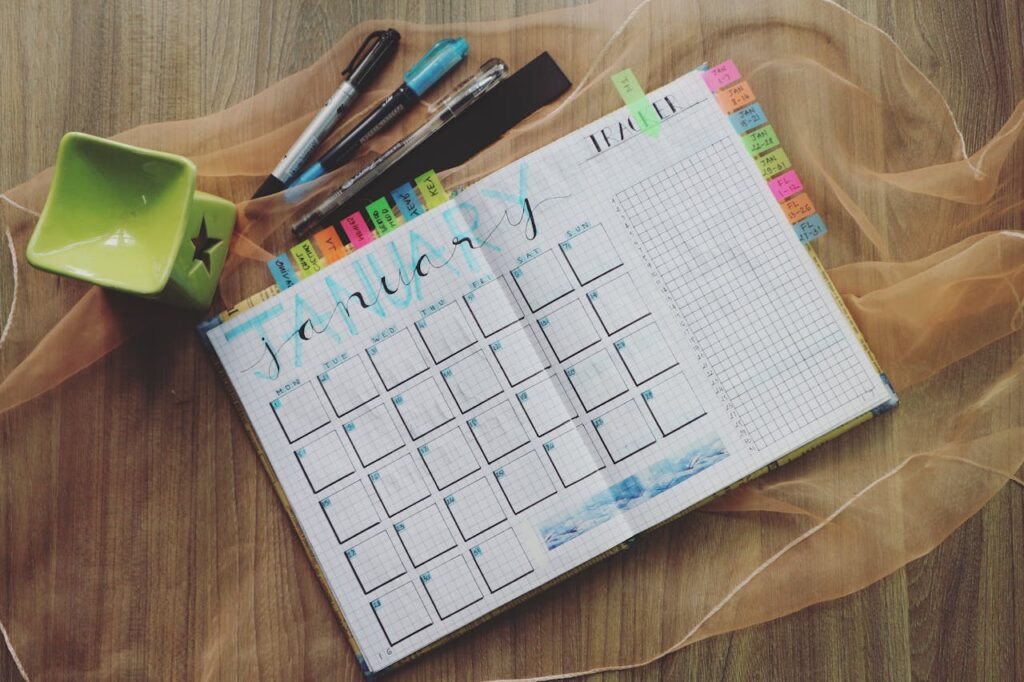
Having a consistent sleep schedule is important for our circadian rhythms. While it’s a familiar term to most, most don’t know that messing up your circadian rhythm is actually quite harmful. It is known to cause memory issues, excessive sleepiness, difficulty focusing, and more.2
Getting the incorrect amount of sleep
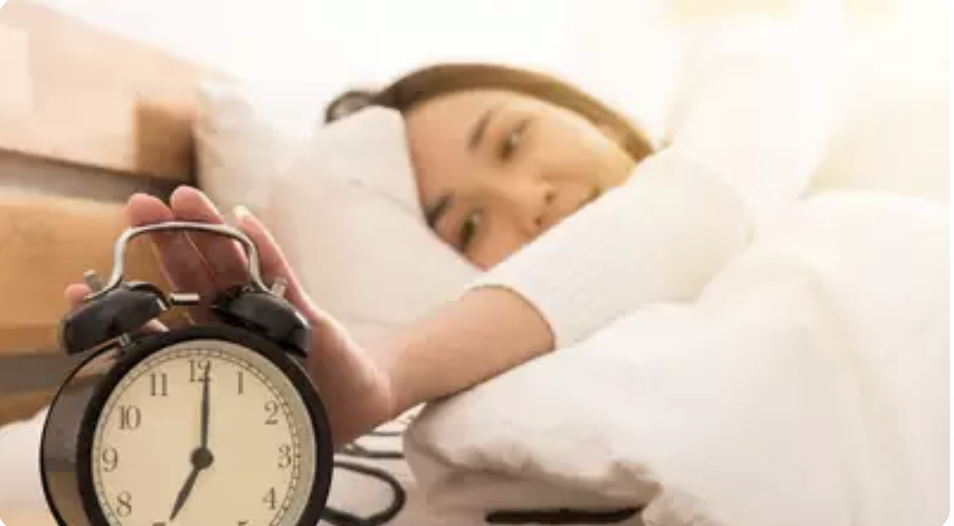
Most people know that not getting enough sleep will undoubtedly make you tired, but getting too much can also make things worse. Now I know we all have busy schedules, and most people aren’t sleeping 9+ hours every night (if you have time for that I’m jealous honestly) but a lot of us tend to sleep short hours over the work week and then on our off days we try to “make up for it” and overdo it by sleeping 10+ hours, thinking we will “catch up” on our sleep. This is not really helpful. Sleeping much longer than 9 hours is shown to make people feel groggy, have brain fog, and actually makes you feel more tired throughout the day.
There are definitely certain occasions when it’s necessary to sleep over the recommended time, such as after having to stay up all night or getting virtually no sleep the night before, but generally, oversleeping is not a good idea.
You should be consistently getting between 7-9 hours of sleep a night. Anything more or less is not considered good quality and is probably contributing to that perpetual tiredness. So if you aren’t one of the people who counts the hours of sleep you’re going to get before bed, maybe get into that habit. Our bodies reach deep sleep, the cycle of sleep necessary for feeling rested and rejuvenated, about 30 minutes into sleep and only lasts for short periods in between cycles, so you need about 7-8 hours to get the recommended amount of deep sleep, which is 1.5-2 hours.
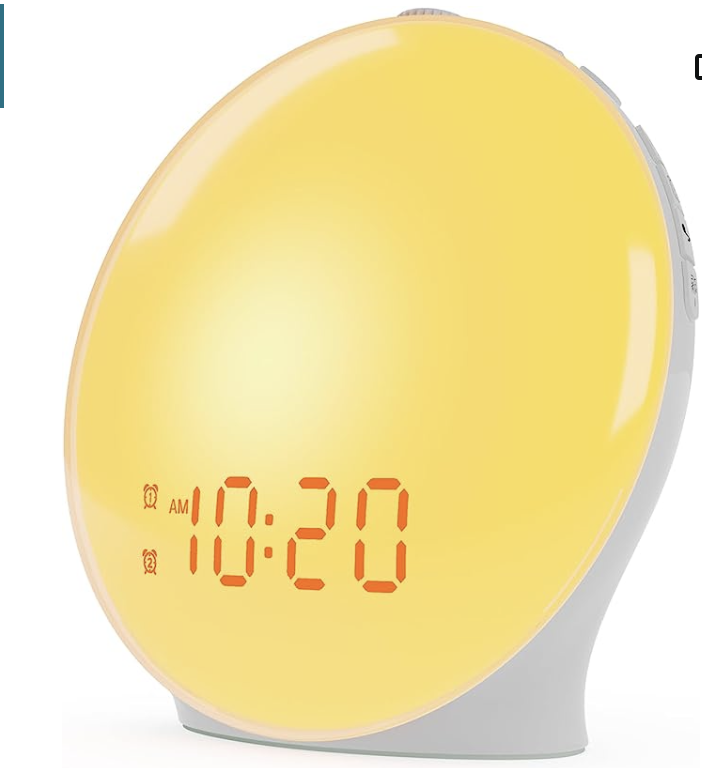
It’s also worth noting that waking up during a deep sleep cycle is a common reason for feeling groggy and like it’s impossible to get out of bed in the mornings. I would highly recommend investing in an app or some sort of smart alarm clock that either tracks your sleep cycles and wakes you up when you are not in a deep state of sleep, or wakes you up gently. This makes it far easier for you to wake up and create a more restful experience. However, studies have shown also that simply staying on a consistent sleep schedule will help immensely with feeling groggy in the mornings. Your body will get used to the time you wake up and naturally pull you toward a lighter sleep at that time.
Screens, Reading, etc.
It’s really no secret these days that screens before bedtime are horrible for your sleep. It’s not something to take lightly, though. I know we have a tendency to say “yeah, it’s not great, but it’s not that bad either…” and ignore seemingly innocuous things such as this, but studies have truly found that screen time severely disturbs your sleep, and, hopefully you’ve already seen how important sleep is to your overall health from the rest of this article. So screens before bed is not something to take lightly.
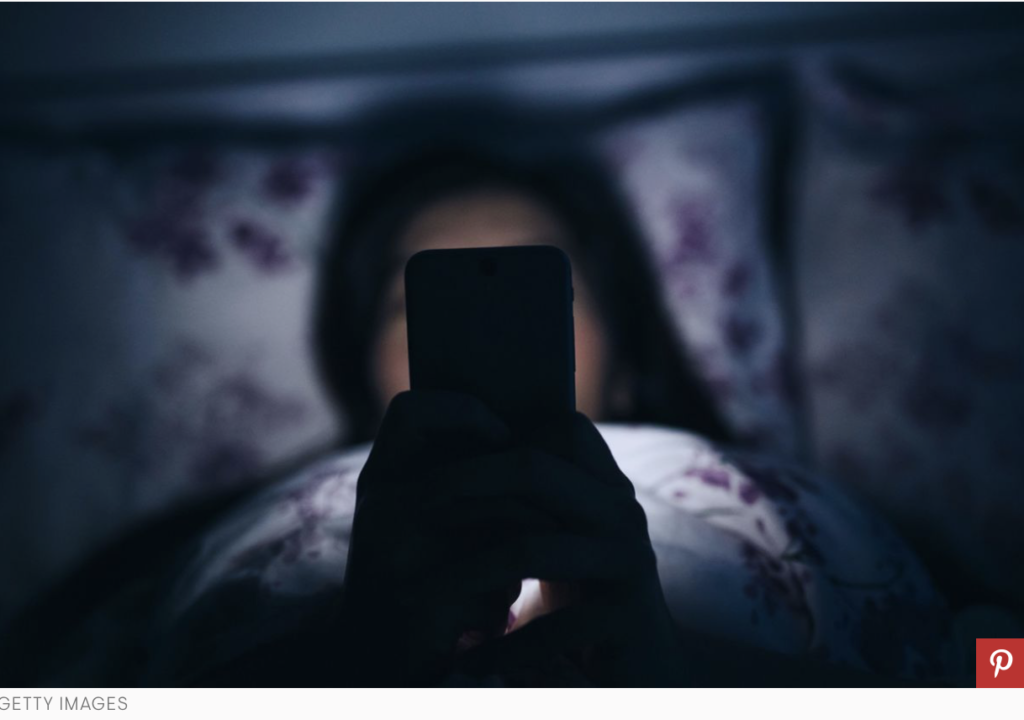
For one thing scrolling on a screen stimulates your brain, which is the opposite of what we want when trying to wind down and sleep. It’s so easy to look up and it be way past your bedtime after scrolling on TikTok for an hour, then quickly panicking and shutting off the lights only to find your mind racing.
The blue light your phone emits also mimics daylight, which is naturally programmed to keep us awake. So looking at a blue light device such as your phone before bed is telling your brain it’s daytime. This could also cause this next phenomenon, which is that research has shown a direct correlation between melatonin suppression and blue light screens.
Finally, use of screens at bed time is known to disrupt your Circadian Rhythm, which we’ve already seen is not to be messed with.
For more information on how screens effect sleeping habits and quality of sleep check out this awesome article from the Cleveland Institute.
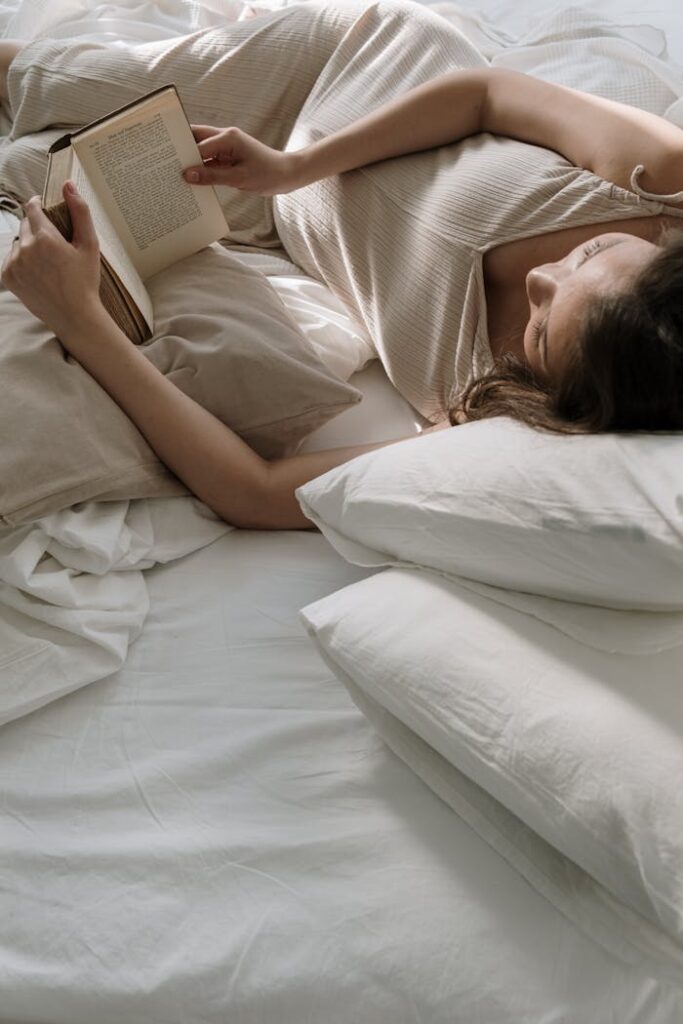
Reading from a physical book before bed, on the other hand, is an excellent sleep habit. It can promote relaxation. Reading can calm you down by distracting you from the stress of your day by transporting you into the world of the book.
While scrolling on social media is shown to stimulate the brain, reading a book has actually been found to de-stimulate the brain.
Just make sure you’re not reading anything too complicated or riveting, as these aren’t going to relax you as much, and may even stimulate your brain (though, still not as much as scrolling). Keep a good fiction, romance or historical novel that you find interesting but doesn’t require intense focus and see if the results are falling asleep easier and a more restful sleep.
Check out this article by Healthine to hear more about the findings of reading before bed and its benefits.
Winding Down Before Bed:
Besides reading, there are some other things you can do to wind down before bed and get into a deep sleep faster.
Yoga
Yoga can be incredibly helpful in relaxing you before bed. Yoga relaxes and stretches your body, and certain poses have been found to literally trigger relaxation naturally in your body.
Here are a few poses I like to do before bed that have been known to trigger relaxation:
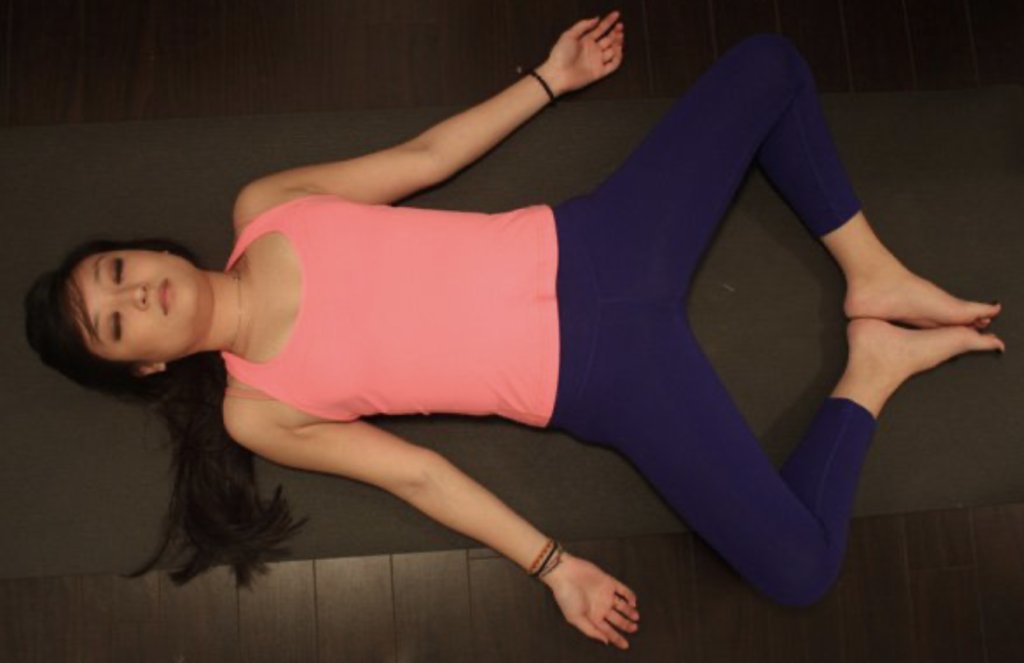
Supine Butterfly
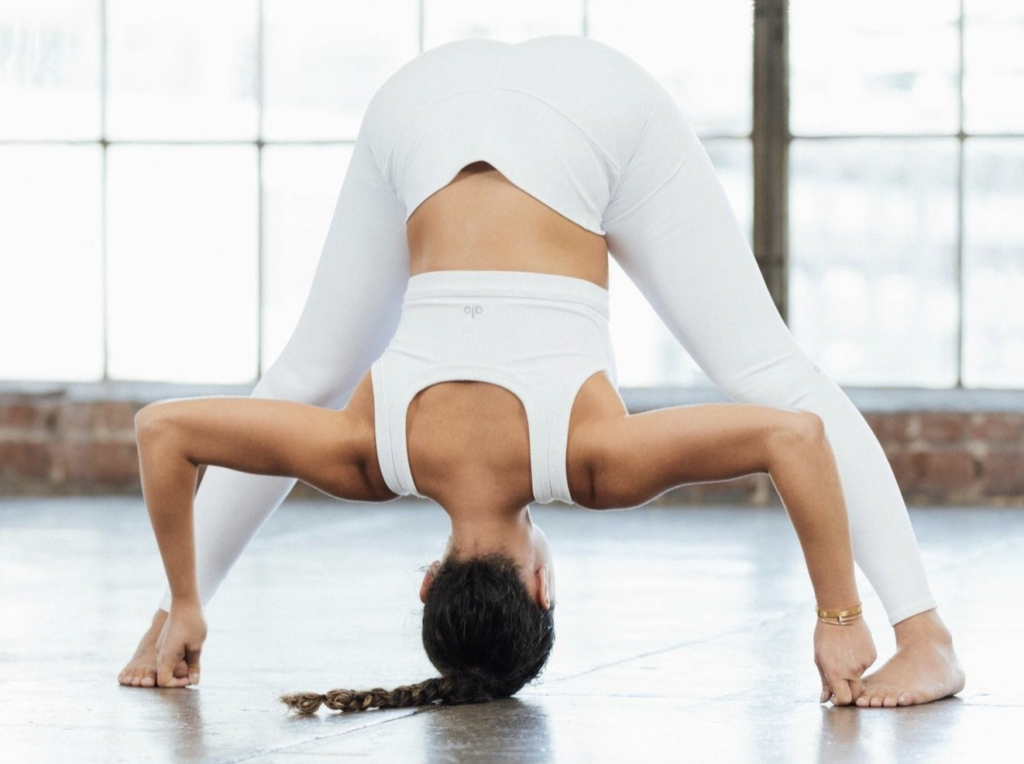
Wide-Legged Standing Forward Bend
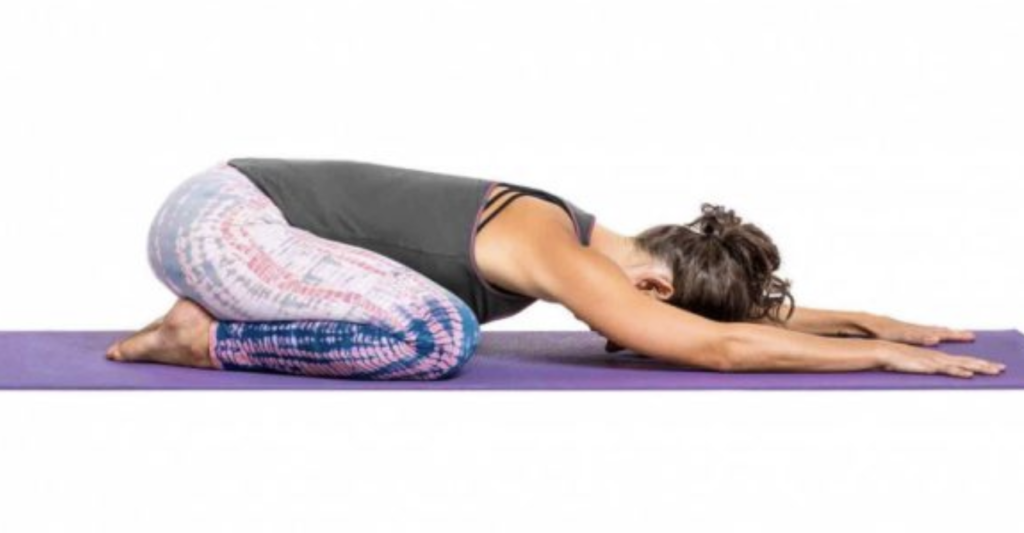
Child’s Pose
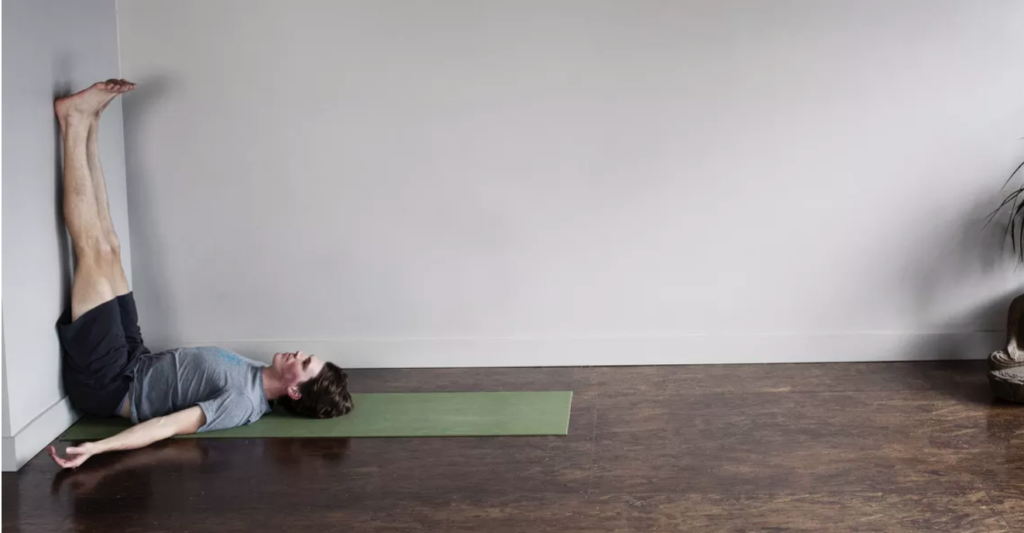
Leg Up Wall Pose
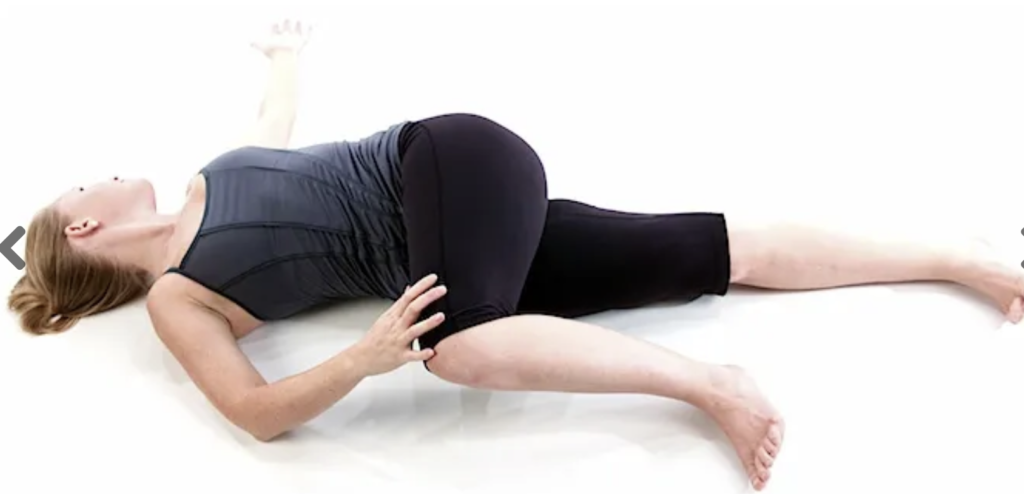
Supine Spinal Twist
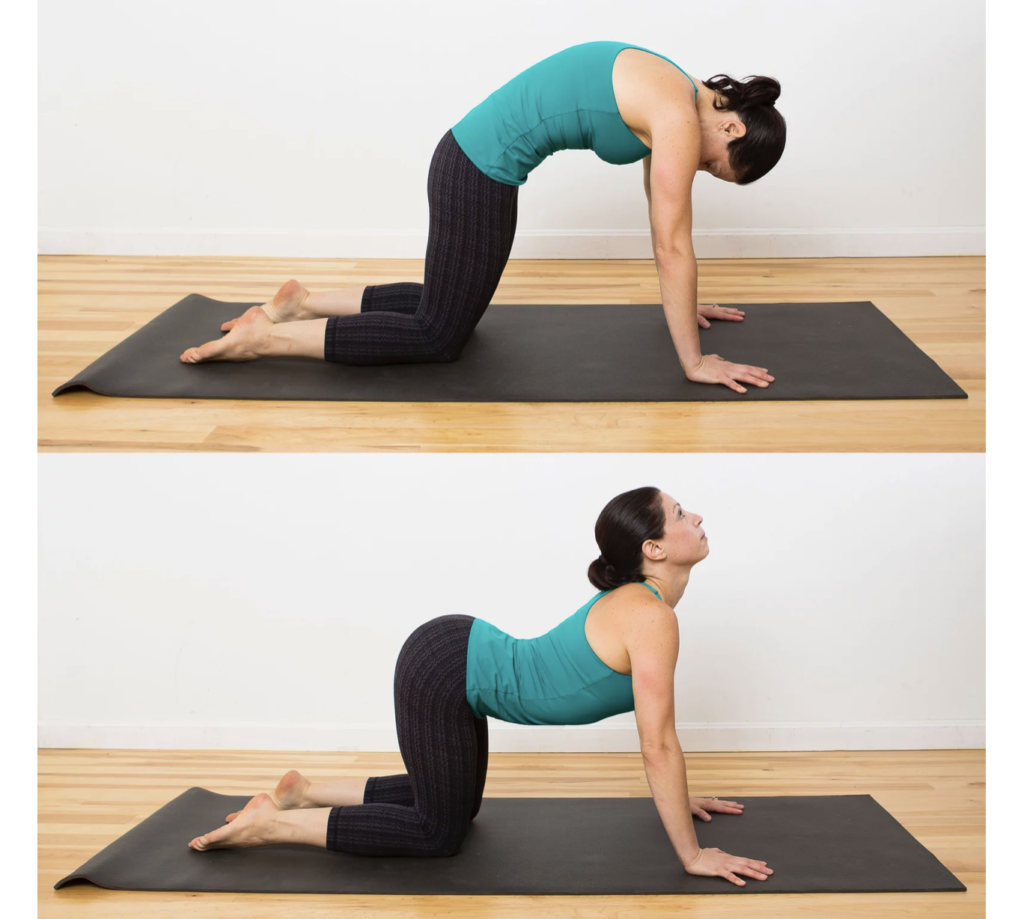
Cat & Cow
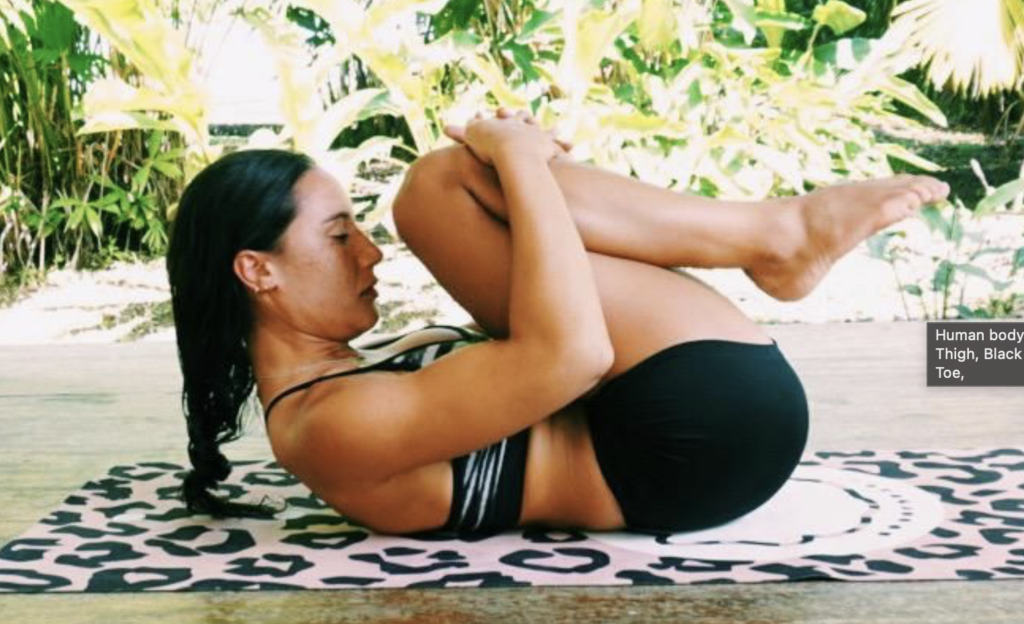
Knees to Chest
Make sure you’re also breathing slowly and deeply throughout the poses, and keep the movements between them methodical. The idea is to be as slow and smooth as possible. Turning on some quiet, peaceful music in the background is also great.
Essential Oils
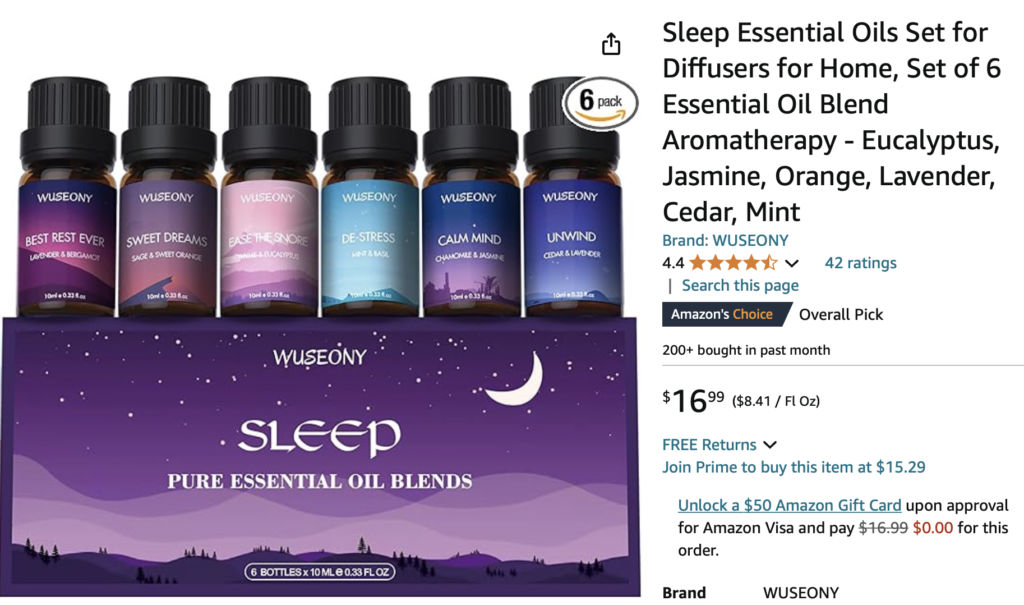
While I’m doing my nighttime yoga routine, and while I sleep, I like to diffuse essential oils like Lavender, Chamomile, Valerian, Sandalwood and Cedarwood oils into the air as well. They can be so calming and soothing before bed. There are definitely a lot of specific essential oils that are shown to help with sleep, but honestly, even if you don’t use those, who doesn’t love a nice smell? Science has shown that smell is intensely connected to human emotion and mood, so it only makes sense that a smell can do wonders for naturally promoting the feeling of relaxation.
Natural Sleep Aids:
Finally, if you’re super stressed out or have bad insomnia, and all those things still aren’t doing it for you, there are a few natural sleep aids that there is no harm in adding to your nighttime routine to aid in sleep.
Herbal Teas
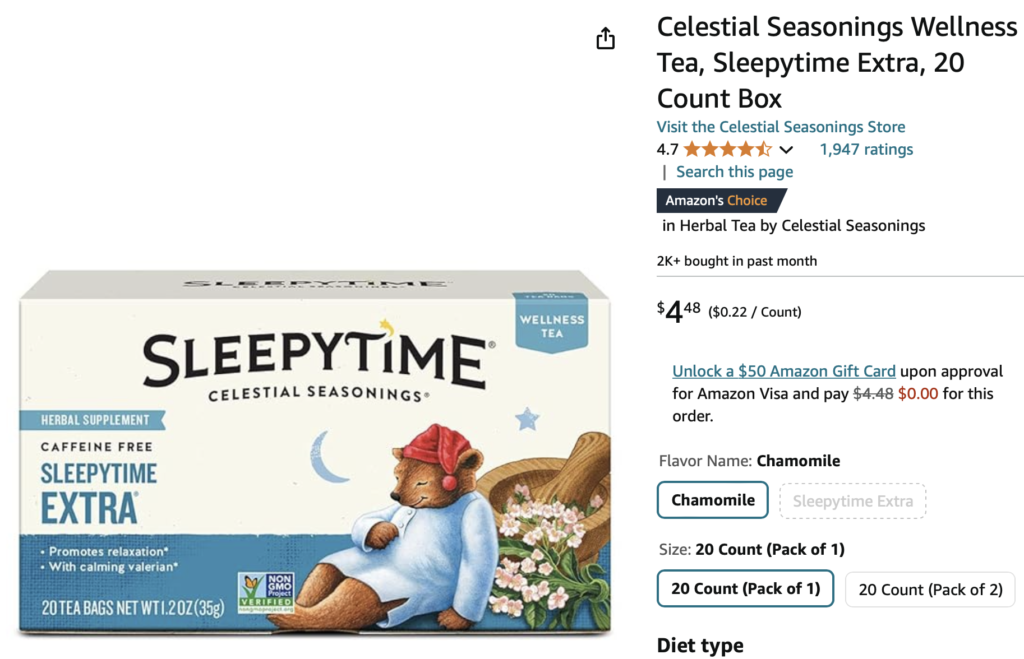
I absolutely love the Sleepy Time Extra or Sleepy Time Detox teas from Celestial Seasonings, but there are a lot of options out there.
You can always opt for one of these blends that are already made for sleep. However, there are other teas that are known to help sooth and relax as well.
Chamomile tea is a very well known calming tea that can work wonders for bedtime. Lavender, mint and valerian root teas are also awesome for sleep. (Basically all of the essential oils are also teas).
Magnesium & Supplements
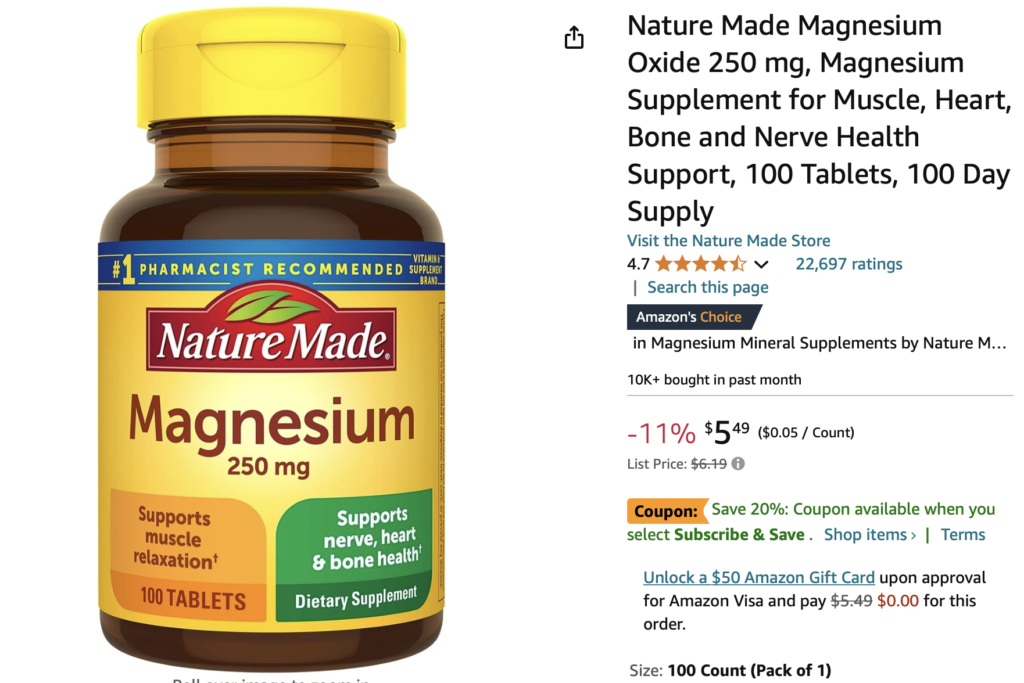
Magnesium has recently blown up as a natural sleep aid. Here’s my take on it.
My mother swears by it and takes it every night. However, I tried it and it actually made me so wound up I couldn’t sleep without taking another sleep aid. So I would be careful with magnesium and test it out on a night you don’t have to be up early or anything the next day to see how it effects you as, according to Reddit, my problem is fairly common.
What I found in my own research is that usually magnesium helps people with magnesium or other specific deficiencies to fall asleep and stay asleep. Melatonin works much the same way (and this is why it has never really helped me). Unless you’re actually deficient in Melatonin and that’s the reason you’re not sleeping, chances are it’s not going to do anything for you other than placebo.
That being said, magnesium and melatonin can work wonders, and there’s absolutely no reason why you shouldn’t try them! You may very well have deficiencies in these things causing you to get lower quality sleep, they are very common and that is the reason for these supplements gaining such popularity. Supplements unfortunately just don’t seem to have consistent enough results to single one out as proven helpful in sleep, so figure out what works for you through experimentation and don’t be afraid to try new things! Just do it on a Friday night or something…
Hopefully I’ve given you some helpful sleep knowledge in the course of this article and at least one of these things can help you stop feeling so tired all the time. If you take one thing away from this article, it should be that sleep is vital to your health and well being. Let’s take sleep more seriously!
